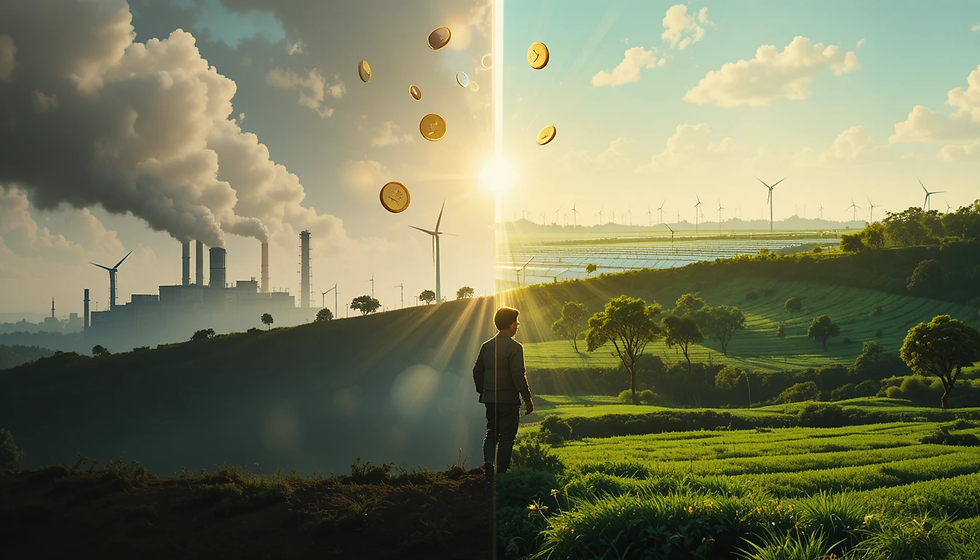Cambodia: USD 82.5 million to accelerate the energy transition through an ambitious reform programme
- Eco News

- Oct 7, 2025
- 2 min read
On 7 October 2025, the Asian Development Bank (ADB) announced the approval of USD 82.5 million in financing for the second phase of the Cambodia Energy Transition Sector Development Programme (ETSDP).

Reforms at the heart of the plan
The first phase, validated in 2022, laid solid foundations: essential political measures to steer the energy sector towards a more efficient trajectory, with a resolute focus on renewable energies. The second phase is part of this continuity and aims to :
Strengthen the regulatory framework for energy efficiency.
Clarify policies to attract private investment.
Introduce the first national regulations setting minimum energy performance standards for electrical appliances, starting with air conditioners - which account for a significant proportion of residential consumption.
A fund to stimulate energy efficiency
The programme also provides for the creation of an Energy Efficiency Revolving Fund, designed to facilitate the financing of local small and medium-sized enterprises in their investments in efficient technologies. Thanks to a financial intermediation structure, this fund will enable local banks to offer targeted loans to accelerate the deployment of high-efficiency equipment throughout the country. The multiplier effect is clear: mobilise national financial institutions, support SMEs and accelerate the mass adoption of efficient energy solutions.
Towards 70% renewable energy by 2030
For Anthony Gill, ADB's Acting Country Director in Cambodia, this initiative embodies a ‘transformative ambition’, in line with the national objective of achieving 70% renewable energy in the electricity mix by 2030. In addition to energy efficiency, this strategy will make it possible to maintain growth that is both sustainable and affordable, a key challenge for the Cambodian economy.
Long-term prospects
The third phase, scheduled for 2027, will consolidate these efforts by expanding the regulatory framework and introducing technical standards for renewables, buildings and industrial activity - all tools designed to make Cambodia an attractive market for private investors.
Share of renewable energy in Cambodia in 2025
In 2025, renewable energies will account for around 52% of final energy consumption in Cambodia, a high percentage linked to the massive use of bioenergy and waste, mainly in rural areas.
The electricity mix is evolving rapidly: installed solar capacity should reach 7% of total electricity production this year, i.e. more than 530 MW, rising sharply from 2023. Hydropower, with infrastructure such as the Sesan-II dam, also remains an important pillar, contributing around 20% of domestic electricity production.
The government aims to achieve a 70% share of renewable energies in electricity production by 2030, combining solar, hydroelectric and other green sources, while seeking to reduce its dependence on imports and fossil fuels. This drive is part of an annual growth in electricity demand estimated at around 16-18%, and is reflected in large-scale projects and an opening up to private funding to support this transition.







Comments